One way to give your house guests a good impression from the get-go is to set lovely plants at the entrance. It can help them feel welcome and at home.
In this article, we’ve listed the most wonderful and luckiest house plants to get for your front door!
1) Citrus Tree
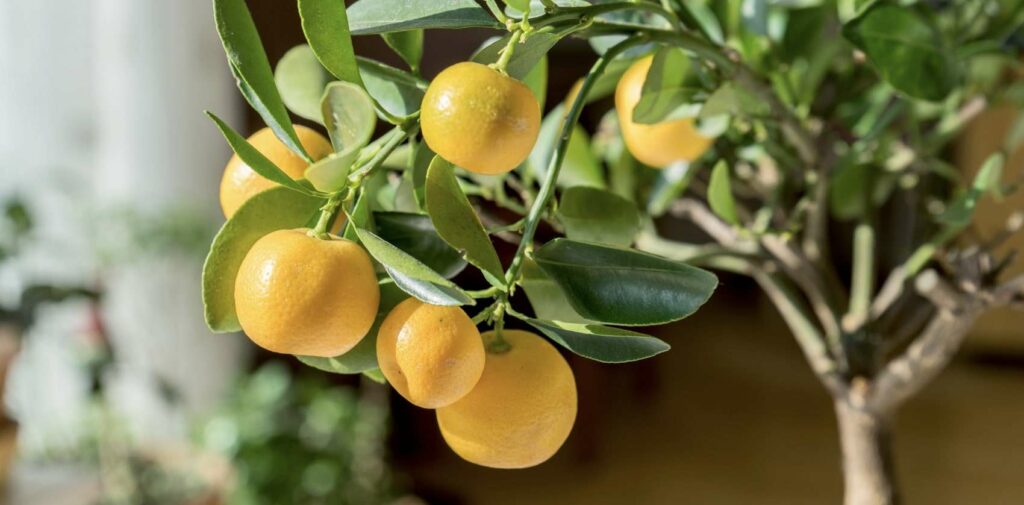

Lucky plant in feng shui, attracting wealth and success
Scientific name: Citrus sps.
Lifespan: About 50 years
Watering frequency: Initially twice a week; once established, every 10 to 14 days
Citrus trees belong to the large genus of Citrus comprising over 100 species, including lemon, lime, and orange trees.
Due to their lush leaf canopy and brightly colored fruit shade, they make for great house entrance decorations.
Seeing one reminds people of these refreshing citrus flavors and aromas used for cooking and garnishing food and making cold drinks.
Placed in a potting vessel, mature citrus trees tend to grow tall between 6 and 12 feet placed outside the house.
Are citrus trees lucky?
Citrus trees are regarded as lucky houseplants in feng shui. They’re believed to attract wealth, success, and good luck in one’s life given their abundance of round, coin-shaped fruit.
2) Petunia
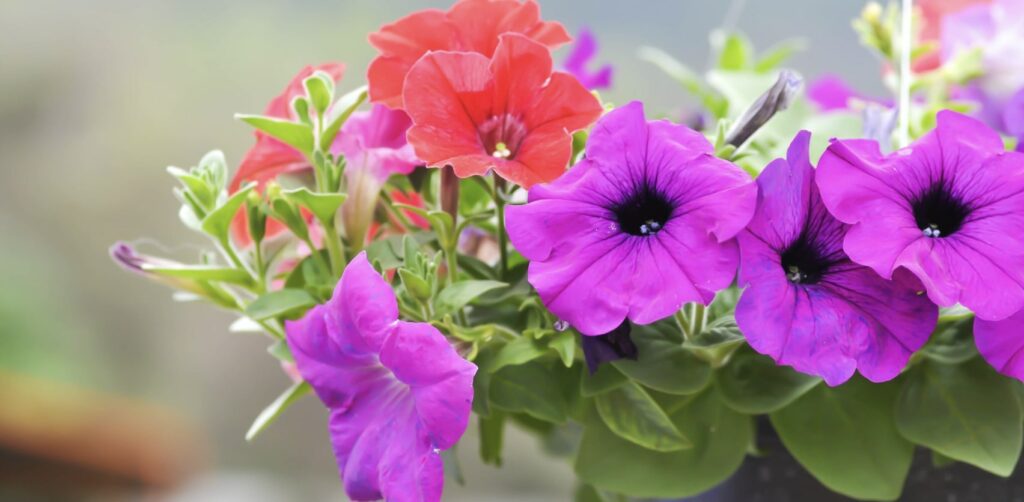

Lucky plant for the Incans and the Mayans, believed to protect one from accidents and malevolent spirits
Scientific name: Petunia x atkinsiana
Lifespan: About 3 years
Watering frequency: Once a week
Petunias are elegant flowering vines suitable for one’s front door where they will receive full sun throughout the day.
The spreading plant produces subtly fragrant flowers. Their total height ranges between 6 and 18 inches.
These flowers can be arranged in different ways: cascading from hanging baskets on the porch, placed on the entry steps, or planted outside on a wide window planter.
Some of their colors are pink, yellow, white, red, and purple. You can mix and match these with your house’s paintwork!
Are petunias lucky?
To the Incans and Mayans, petunias were a lucky plant. They believed that the flower only grew in beautiful and calm places and protected them from accidents and malevolent spirits.
3) Marigold
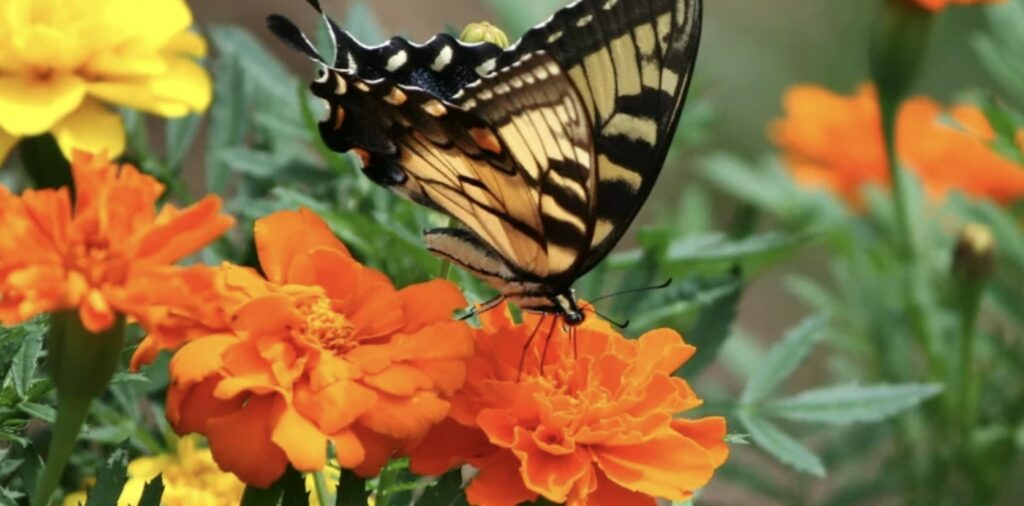

Lucky plant for protecting against deception, sickness, and evil spirits, attracting wealth and success
Scientific name: Tagetes
Lifespan: Less than a year
Watering frequency: Once a week
Unique, striking, and easy to grow, the marigold flower is one of the most wanted plants for house entrances.
Marigolds are known for their round cluster of flowers in orange, yellow, and cream-white tones. Reminiscent of the sun, these embody a person’s inner light and strength.
Furthermore, these classic annual flowers thrive in full sun and can tolerate heat and drought if they’re not tended to promptly.
There are many types of marigolds differing in flower form and height, with the most popular being French, African, and Signet varieties.
Are Marigolds lucky?
It is said that orange-yellow marigolds are lucky, as they protect the homeowner from sickness, deception, and evil spirits.
This is based on the fact that their aromatic leaves repel pests and their fruits have small spines preventing them from being eaten.
In addition, in feng shui, they are believed to magnetize abundance and success because of their bright and round blossoms.
4) English Ivy
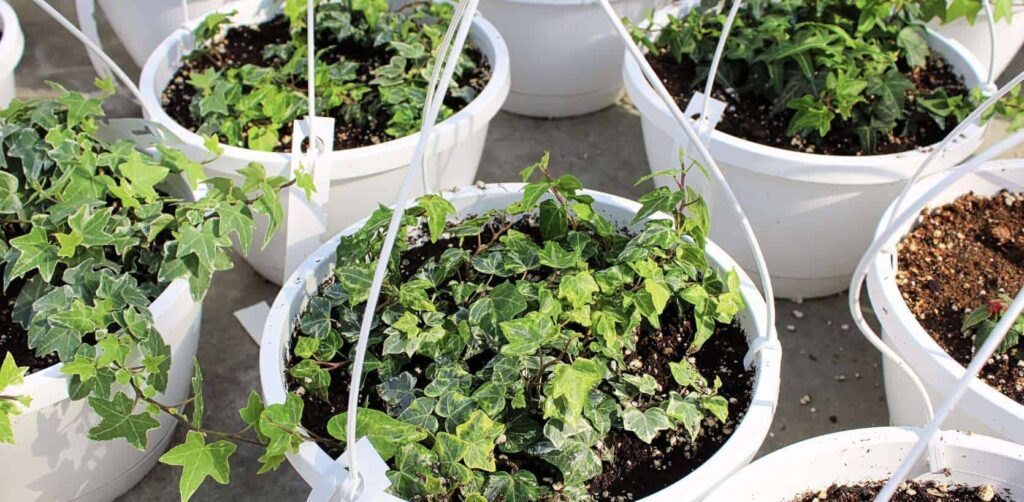

Lucky plant for protecting families from negativity and stress
Scientific name: Hedera helix
Lifespan: 100 years or more
Watering frequency: Once a week
To make the front door verdant and inviting, English ivies can be used. Each of its leaves resembles a star’s shape with sharp sides radiating from a central point.
These trailing plants extend very long upwards or in the ground. Thus, trimming is often needed to maintain them to their desired length in their pot or planter.
As English ivies climb using their aerial roots and adhesive discs, they may be set up with a stake or trellis structure.
Also, their care requirements are simple. Ivy plants prefer bright-to-low shaded sun and a consistently warm and moist environment.
Are English ivies lucky?
English ivies are among the few lucky plants in the feng shui practice. This is due in part to their numerous sharp leaves, which are said to protect the homeowner from negativity.
Therefore, this climbing vine can act as a stress or toxicity buffer outside of the house for people coming home from work.
5) Bird of Paradise
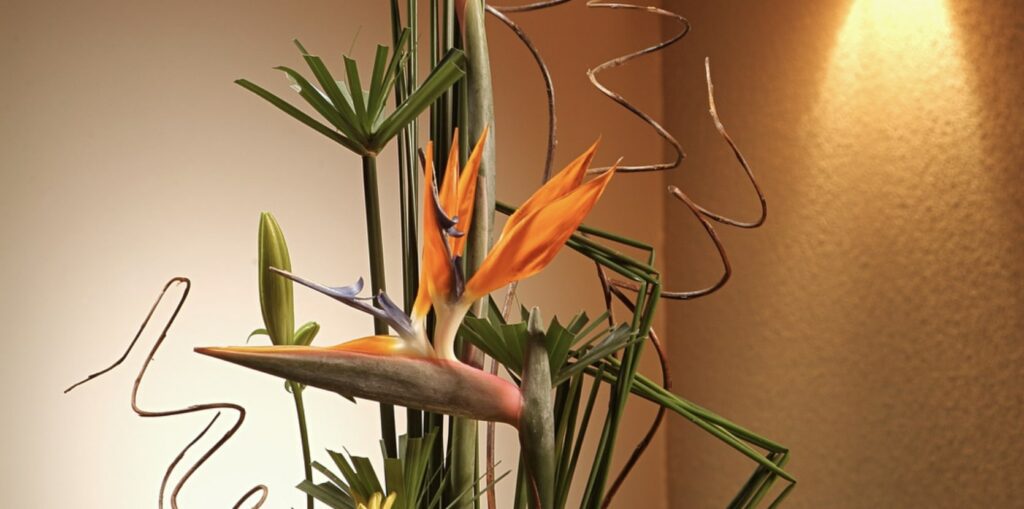

Lucky plant for attracting success and fortune
Scientific name: Strelitzia reginae
Lifespan: About 25 years
Watering frequency: Every 1 to 2 weeks
The exotic bird of paradise plant lends a tropical ambiance to the house. This potted plant is a wonderful addition to the front door thanks to its elegant flowers and leaves.
The flowers can be orange with a bit of blue or altogether white. These contrast perfectly with the shiny green leaves that support them.
To grow healthy, birds of paradise need full morning sun and moist soil. Also, the plant must be watered every one to two weeks when the top 2 to 3 inches of their soil has dried.
Are birds of paradise lucky?
Feng shui practitioners believe that these plants bring luck, positivity, and success, as they have bright yellow and orange colors and symbolize beauty and freedom.
6) Wax Begonia
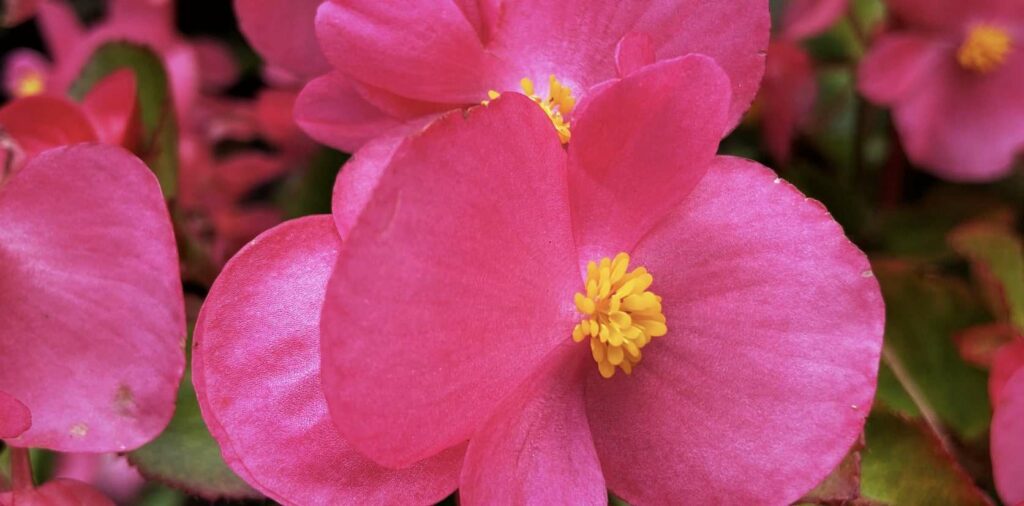

Lucky plant in Chinese culture, bringing good luck and prosperity
Scientific name: Begonia cucullata
Lifespan: 4 to 5 years
Watering frequency: Once or twice a week
Wax begonias are classic, beautiful summer bloomers popular as yard, garden, and entrance door plants.
Their flowers are delicate and pretty, complemented by thick and waxy leaves, from which their name was taken.
There are red, white, and pink wax begonia flowers as well as a combination of these hues.
However, they don’t fare well in intense sunlight, preferring partial sun instead. It’s therefore advisable to place them on porches and shaded entrances.
The eye-catching flower also prefers moist soil, and mulching the plant helps to achieve it. During hot spells, its leaves can be sprayed on with some water to prevent dryness.
Are wax begonias lucky?
There’s an old belief that says begonias are unlucky, as they signify a future problem or bad luck. Whereas, for Chinese people, these attractive flowers bring good luck and fortune.
7) Chrysanthemums
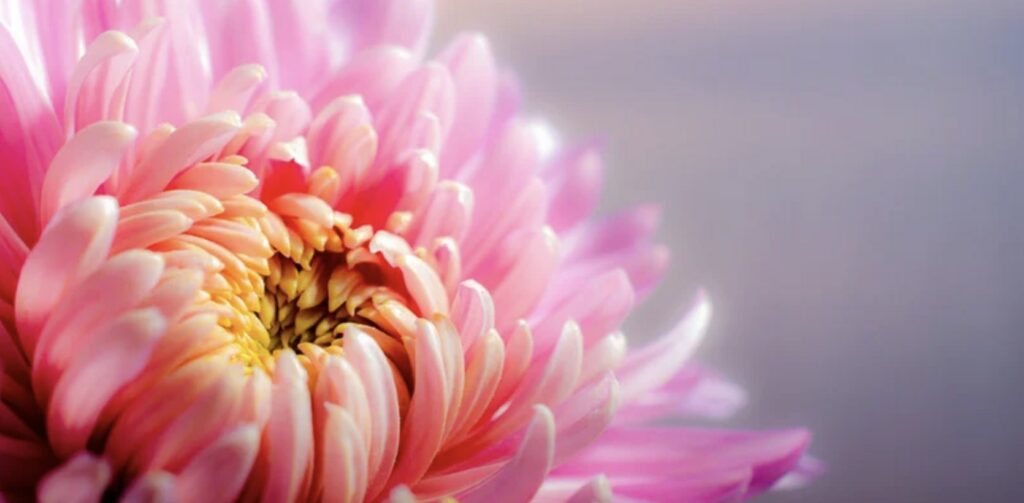

Lucky plant for attracting good luck, wealth, success, and long life
Scientific name: Chrysanthemum coronarium
Lifespan: 3 to 4 years
Watering frequency: Once a week
Belonging to the genus Chrysanthemum, chrysanthemums, or simply, mums, are perennial flowering plants in the Aster family.
The flower can take the form of a daisy, pompon, or rosette. Furthermore, it has 13 different flower patterns with exposed or concealed disc and ray florets.
Its bloom time is usually during fall in September and October. At this time, mums can serve as a wonderful front door plant when many spring flowers are winding down.
Popular chrysanthemum colors include bright red, white, pink, and yellow. Grown on pots, they form large mounds of attractively colored flowers.
Are chrysanthemums lucky?
Chrysanthemums are very lucky, being a symbol of longevity, happiness, and good luck. In particular, gold and yellow chrysanthemums represent wealth and success in business or other professional ventures.
8) Lavender
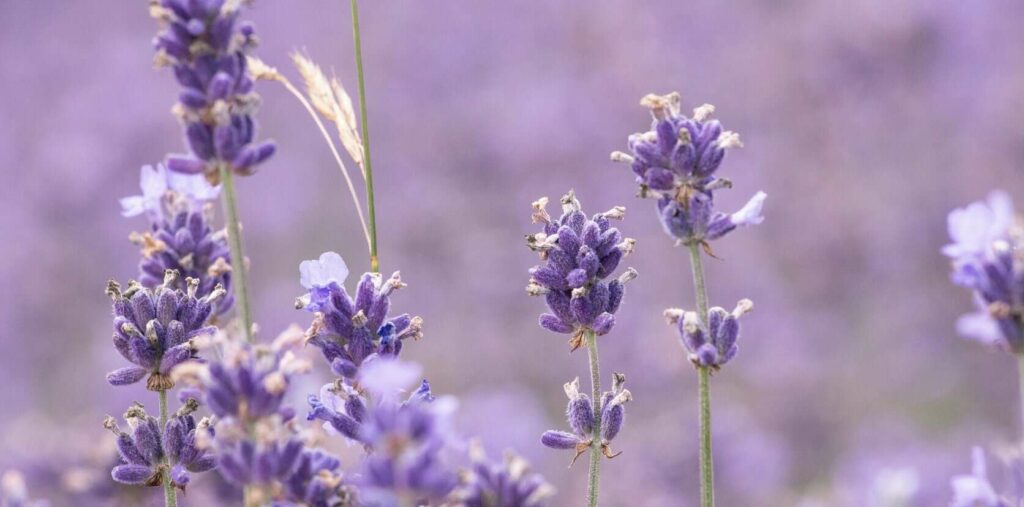

Lucky plant for countering toxic energy and drawing good luck in the house
Scientific name: Lavandula angustifolia
Lifespan: 15 to 20 years
Watering frequency: Initially once or twice a week; once established, two to three weeks
Potted lavenders placed at the front door are warm, calming, and pleasing to the senses.
These flowers belong to the mint family of Lamiaceae and the genus Lavandula.
They are characterized by tightly bundled purple flowers, an upright flexible stem, and a gentle scent that is proven to benefit health in many ways.
For example, lavender can relieve asthma, high blood pressure, skin issues, stress, or other ailments when drunk as tea or used in aromatherapy.
Its mature height ranges between 20 and 24 inches with flowers but up to 12 inches only if the flowers haven’t grown yet.
Are lavenders lucky?
Lavender flowers can neutralize negative energy in the house and bring good luck, according to feng shui principles.
Thus, lavenders are excellent as front-door decorative houseplants. It can decrease the anxiety and anger of someone entering the house and replace them with positive emotions.
9) Basil
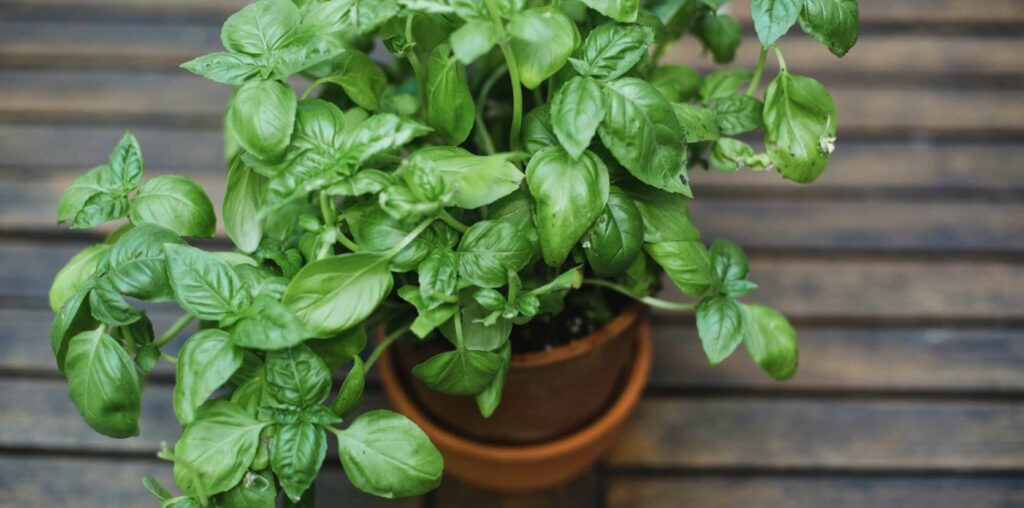

Lucky plant for wealth, success, and greatly improving his business affairs
Scientific name: Ocimum basilicum L.
Lifespan: 6 to 8 months
Watering frequency: Once a week
Basil plants are an annual herb of the mint family of Lamiaceae. Their beautiful deep-green foliage grows abundantly on a potted vessel.
Their leaves are smooth and large with V-shaped veins. Also, the leaves grow either opposite or perpendicular to each other.
This makes them a nice front door ornamental plant that greets one’s family and guests coming into the house.
In addition, they are easy to grow and have many culinary uses, enhancing the style, taste, and scent of soups, salads, pizzas, and so forth.
Unfortunately, being an annual plant, the basil plant’s disadvantage is it only lasts for one growing season, whether kept indoors or outdoors.
Are basil plants lucky?
In feng shui, keeping a basil plant near the front door of the house invites good luck, wealth, and prosperity. Its round fleshy leaves are said to bring financial security and success to the plant owner.
10) Sweet Alyssum
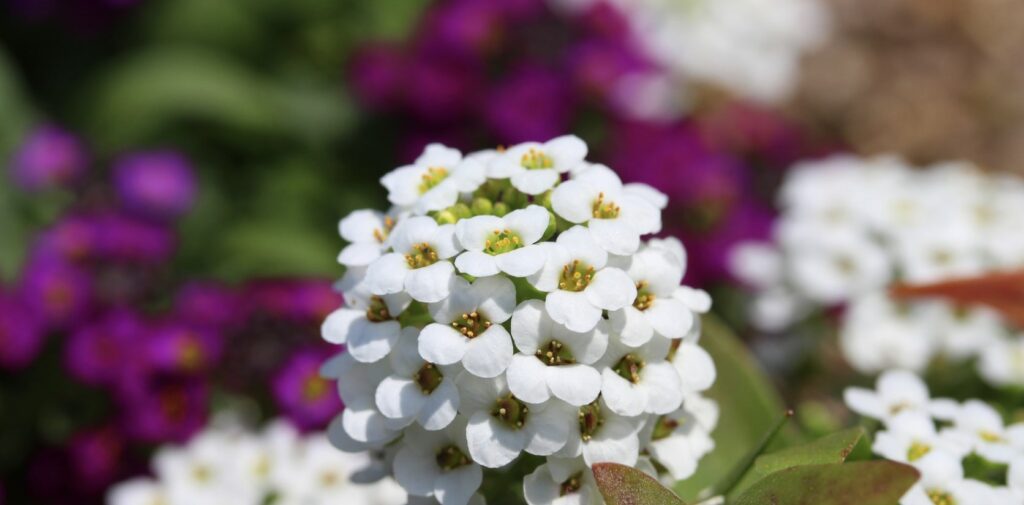

Lucky plant for fostering calmness and peace inside the house, absorbing each family member’s negative energy
Scientific name: Lobularia maritima
Watering frequency: Once a week
Sweet alyssum is a perennial shrub that bears small and delicate flowers. These flowers come in shades of purple, pink, and white, and they release a sweet honey scent.
Their long, narrow, and hanging leaves are akin to that of the maize plant. Moreover, they are borne on woody stems.
The annual plant spreads out from 24 to 36 inches and requires ample space to grow in. As long as the entrance is spacious, they can be grown in hanging baskets, planters, or tubs.
This flower can add a certain charm to your house with the right-colored pot. It enjoys partial to full sun and is cold-hardy down to 20℉, so it is a low-maintenance plant.
Are sweet alyssum lucky?
Although sweet alyssums aren’t a very popular feng shui lucky plant, the presence of their lovely and fragrant flowers and leaves can foster serenity and calmness in the house. It can curb toxic energy from people too.
11) Lucky Bamboo
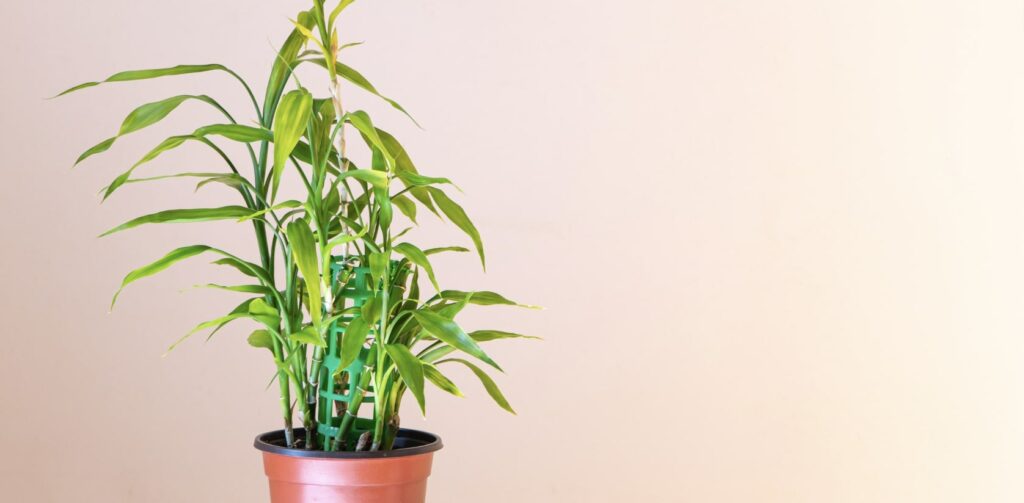

Lucky plant for wealth, fortune, and good health and adding positive energy to the house
Scientific name: Dracaena sanderiana
Lifespan: 1 to 2 years
Watering frequency: Once a week
Despite its name, the lucky bamboo is not a true bamboo. This hardy perennial is one of the dragon trees part of the genus Dracaena and the family Asparagus.
Lucky bamboo features alternating leaf growth on sturdy thick stems. The leaf is long and slender, may twist at the end, and is green or yellow-green.
As a houseplant, it typically grows from 4 to 13 inches tall and can get easily get untidy if not trimmed regularly.
Easy to maintain, the fall and winter-blooming plant prefers bright partial sun, moist soil, and moderate climate, which are found in its African rainforest habitat.
Due to its manageable size and minimal care needs, the lucky bamboo is suitable to be grown at front doors and lawns.
Are lucky bamboo lucky?
The lucky bamboo is a favored plant in feng shui since it adds positive energy around the house and attracts fortune, luck, good health, and success.
Besides, the plant isn’t demanding to care for.
12) Devil’s Ivy
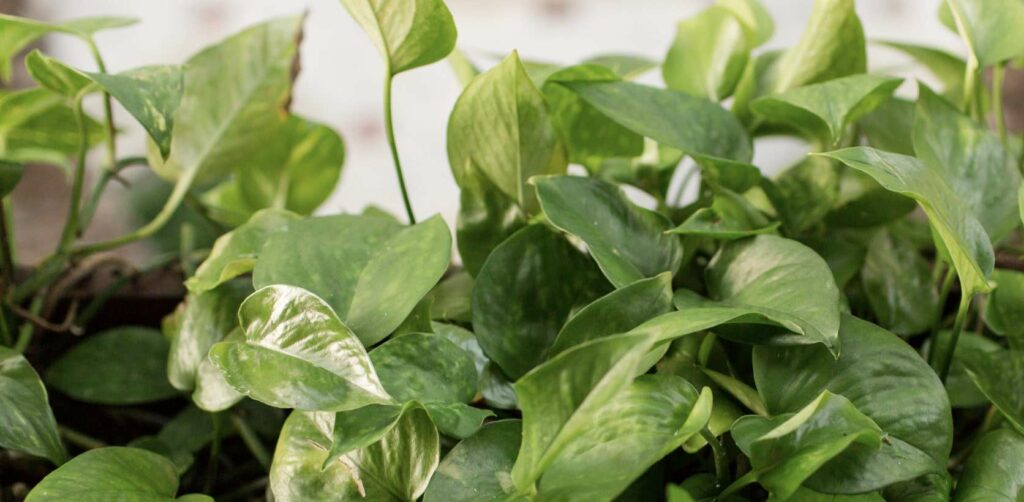

Lucky plant for attracting bliss, fortune, and stability
Scientific name: Epipremnum pinnatum
Lifespan: 5 to 10 years
Watering frequency: Once a week in summer and once a month in winter
Devil’s ivy or pothos is a tropical vine plant from the Asia-Oceania region. Its most notable feature is its heart-shaped leaves with varied gold and white marks.
This vining plant does well in hanging baskets and small pots where it can grow abundantly and trail down. This adds a rustic charm to the front of the house.
Caring for this plant is easy. It needs full or part sun, moist soil, and watering one to two times every week when the soil has dried out completely.
In fact, it can survive in low-lit areas and extended dry periods as well as a variety of environmental conditions. It earned its nickname the devil’s ivy because it does not die easily.
Pothos is also simple to propagate, allowing new pothos to be displayed in other places of the house or garden within months.
Are devil’s ivy lucky?
Devil’s ivy is a very lucky plant said to lock in fortune, stability, and happiness in houses and workplaces. It’s one of the most famous money plants in feng shui.
Plus, space agency NASA deems the resilient vining plant as a natural air purifier that can remove toxic air chemicals like trichloroethylene, formaldehyde, toluene, xylene, and benzene.
13) Boston Ferns
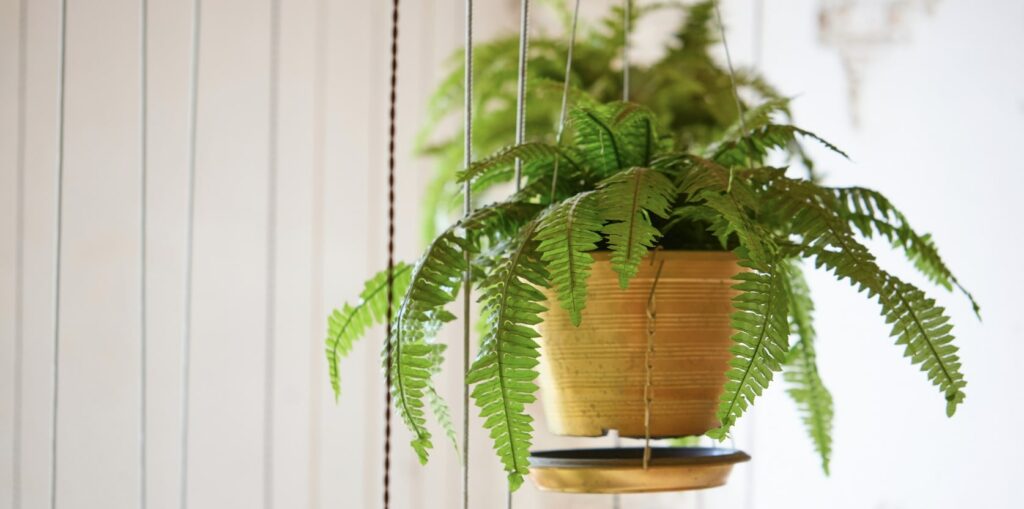

Lucky plant for neutralizing unease or stress
Scientific name: Nephrolepis exaltata
Lifespan: More than 100 years
Watering frequency: Twice a day
Boston ferns or sword ferns are elegant-looking outdoor plants. Their lengthy fronds are curved or spiked and nicely extend out from the pot.
The mature height and spread of these plants are 2 to 3 feet, making them suitable for small spaces and corners.
Unlike other houseplants, Boston ferns and other ferns don’t bear flowers. Rather, they produce brown spores under the fronds in order to reproduce.
Ordinary and hanging pots are well-suited homes for these plants. They can also wonderfully blend in with other kinds of plants.
Also, these ferns are generally easy to care for. They require a humid spot, moist and well-drained soil, and exposure to part sun to flourish.
Are Boston ferns lucky?
Boston ferns are considered lucky in feng shui. Having these plants will balance the aura of the house.
They can provide softness to the house if the atmosphere feels uneasy or stressful.



